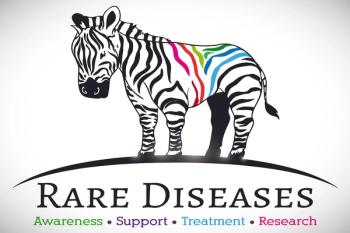
Defining Rare Diseases and Orphan Drug Act
Transcript:
Peter L. Salgo, MD: Let’s broaden this out just a little bit, because Huntington is a rare disease, but there are lots of rare diseases out there. How would you define a rare disease? Is there a definition?
Sika Dunyoh: A rare disease in the United States is defined as a disease that affects less than 200,000 people. The definition of a rare disease changes by country, given that population. But you see diseases that affect many people, even within the definition of rare. But there are also diseases that affect less than 40 people around the world. So as technology advances, we’re seeing more and more rare diseases identified every year. That number, 7000, we just see it growing.
Peter L. Salgo, MD: If we had to pick, there it is. There was an attempt to address all this with Congress, right? In fact, they passed something called the Orphan Drug Act of 1983. That’s been around for quite a while. What is it? When does it kick in? And what does it mean? Does anybody know?
Sika Dunyoh: The Orphan Drug Act is an act that passed in 1983 to incentivize pharmaceutical companies to develop and manufacture drugs to treat orphan diseases. Prior to that act, many pharmaceutical companies didn’t see the benefit of creating drugs to treat orphan diseases because there was more of an incentive to create drugs that treated common diseases so that they would be guaranteed a return on their money.
Peter L. Salgo, MD: If we really want people to benefit, even though their disease is not economically viable to a drug company, maybe we protect their pricing—we protect their ability. As I understand it, it also provides a monopoly to a drug company that adopts this orphan drug.
Sika Dunyoh: They’re awarded marketing exclusivity for a certain period of time.
Peter L. Salgo, MD: Essentially, they are a monopoly; exclusivity is a more polite term. But I don’t know that to be impolite. If somebody wants to bring an expensive drug in to benefit very few people, they should get some advantages, don’t you think?
Sika Dunyoh: Yes, there’s a lot of risk and a lot of money that these companies put out to develop these drugs—to research, to put the clinical trials in place. The reward is to be able to get incentives, including marketing exclusivity.
Peter L. Salgo, MD: The potential backfire is if a drug is protected by the Orphan Drug Act and suddenly it’s useful in a different disease, and that disease is not an orphan disease at all—not a rare disease. AZT [azidothymidine] comes to mind in the beginning of the AIDS epidemic, when I believe AZT was an orphan drug. But it suddenly was available for millions of people. Is there anything in the act that allows you to modify and say, “Look, it’s no longer an orphan drug”?
Maria Lopes, MD, MS: Well, I think part of the challenge is the way a drug comes to market for a very small number of individuals and then seeks additional indications. Often the price tag that it came to market with, because it was orphan, is what gets used then for more highly prevalent conditions.
Peter L. Salgo, MD: Right.
Maria Lopes, MD, MS: This makes the drug even more unaffordable.
Peter L. Salgo, MD: Right, that’s a problem.
Maria Lopes, MD, MS: That is a problem.
Peter L. Salgo, MD: That wasn’t addressed early on in that legislation, but at some point we probably should take another look at that. Certainly, from your perspective, it makes things more expensive necessarily than they have to be, right?
Maria Lopes, MD, MS: It also forces us to do more to the drug in terms of prior authorization by indication. Each indication maybe has its own set of step therapy, especially if there are other options. In orphan conditions, there often are no other options. But as the indications expand—and now you’re in a disease state that maybe has generic options, or 2 other agents—it forces us to manage that drug by indication much more closely.
Newsletter
Stay ahead of policy, cost, and value—subscribe to AJMC for expert insights at the intersection of clinical care and health economics.









